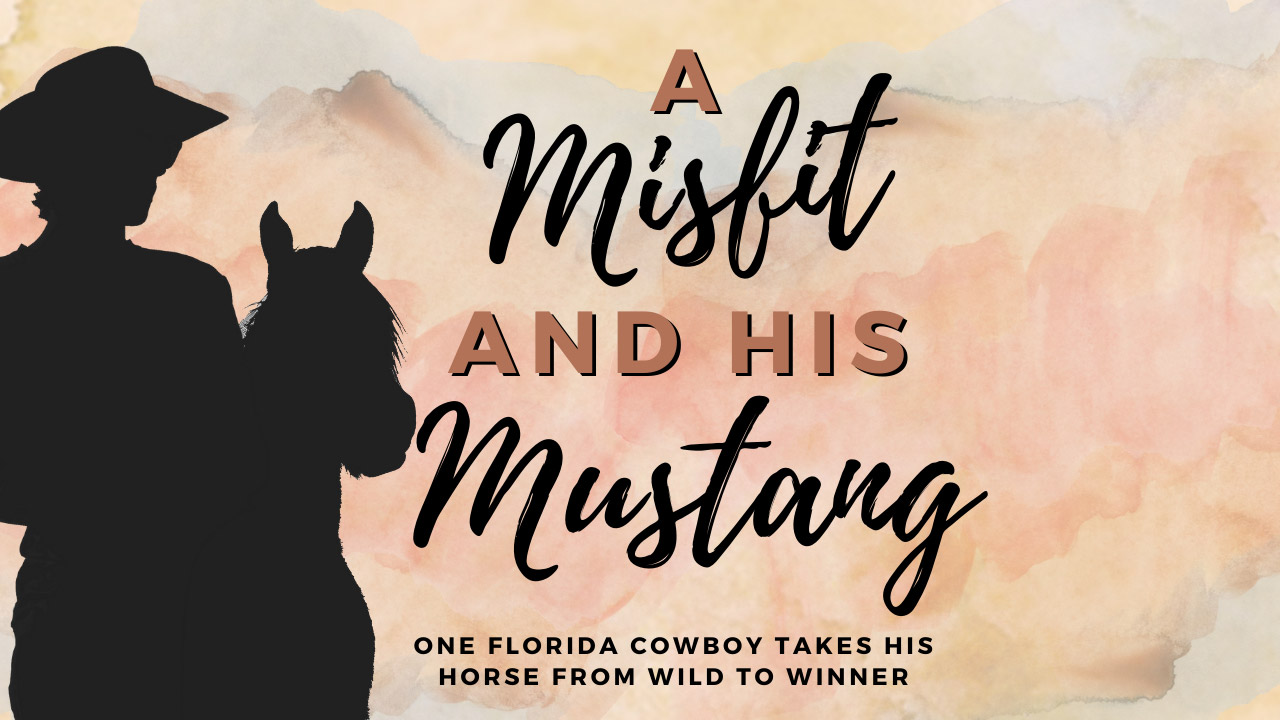
June 4, 2021 | Story by Natalia Galicza | Graphics by Kristin Bausch | Photos by Apoorva Thapa
Joseph Richards faced five hours of road ahead of him. From the back seat of his stepmom’s 2006 Ford F-350, he watched treetops blend together as the hulking truck sped north on Interstate 75. The engine roared and rumbled, which might have bothered Joseph on any other day, but that morning, it helped drown out unwelcome thoughts.
He had embarked on this journey with his girlfriend, Gigi, his younger brother, Tyler, and his stepmother, Heather Richards. They rose before dawn on that Friday in June of 2019, the first of many arduous days in the months to come. The sun had yet to tint Fort White’s dim sky when the entourage set forth for Calhoun, across the state border in Georgia. Birds had yet to burst into song. The world outside of the booming truck appeared to rest in an eerie silence. Yet, Joseph’s head buzzed.
Each mile hurtled him closer to his first mustang. He knew little about the horse, other than that it was entirely untamed and unfettered; his own to train from scratch. He saw it as his fate.
He had 90 short days to transform his beast into a winner. At 16, he was going up against senior division horse trainers in a regional competition. Outwardly, Joseph seemed confident. But deep inside, doubt gnawed away at him. How was he ever to pull off such a feat by September?
Like most teenagers, Joseph took life in stride. He stuck to what he knew best: working independently and getting his hands dirty. At one point he had felt sure this meant he was destined to become a welder. But his sights shifted elsewhere. And though he typically did not fret over the future, out on the open road, he had no choice but to think.
How would he make a name for himself? Would he be one of the lucky ones, earning a living doing something he loves? What would happen if he failed? Adulthood hovered, and Joseph didn’t know any answers yet. That was hardly unusual, but still, it remained a source of discomfort. Regardless, he felt ready to pursue his equine dreams. He felt ready to at least try.
The closer he got to Calhoun, the more he wondered how he could assert control over his acquisition. Mustangs are not inherently aggressive, but one calculated kick could shatter anybody’s bones. Joseph knew he had to remain vigilant.
Luckily, he was the kind of person who sought thrill for the sake of it, even when it meant a risk of getting trampled. In rodeos, he had handled bulls, bucking horses and breeds much heftier than American mustangs, though they were all domesticated. He had flung himself off the sides of charging horses, lassos readied and aimed at idle goats. One of his goat-tying trophies, a brick-sized belt buckle, became a staple in his wardrobe; proof that he had conquered.
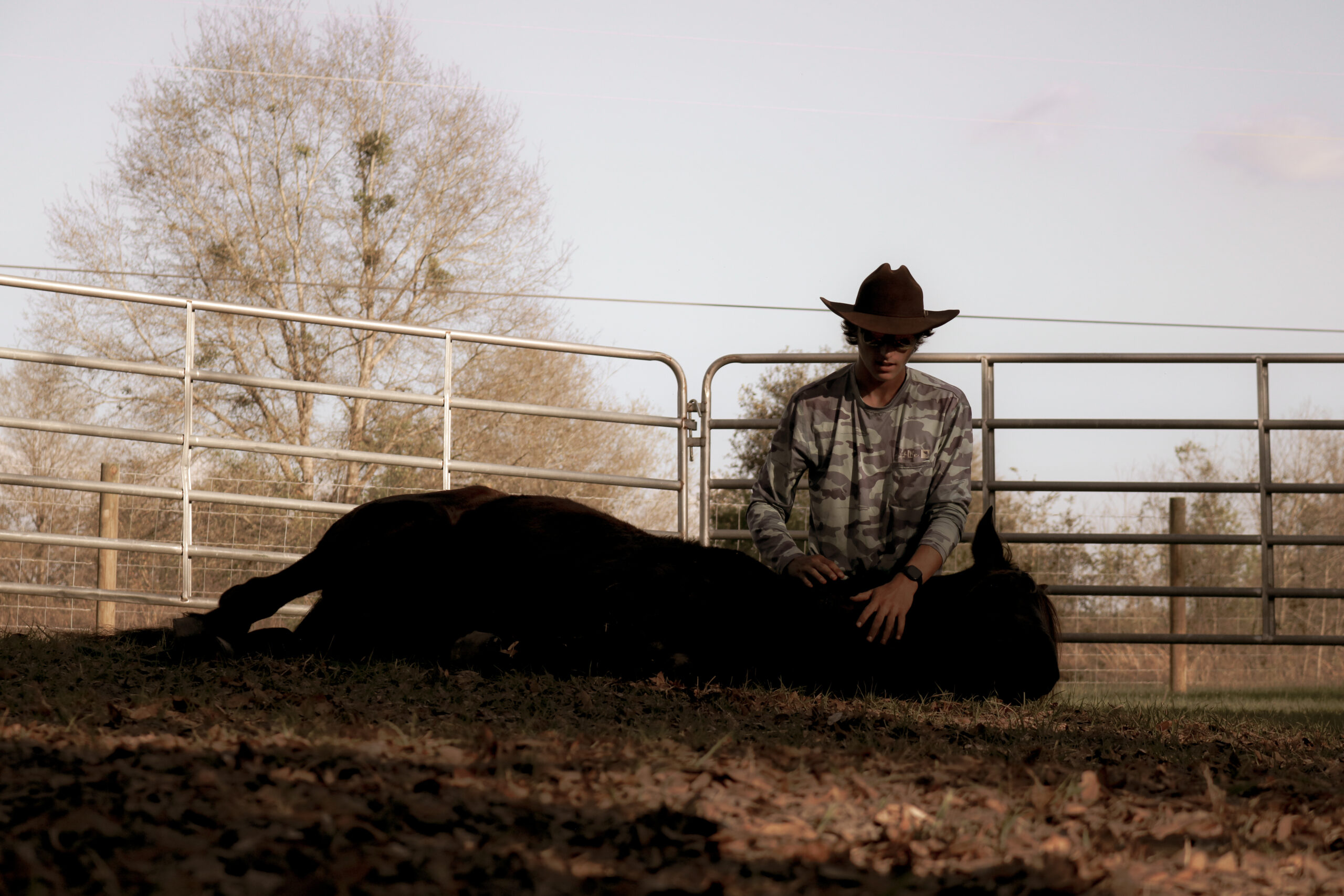
Joseph trains one of his mustangs, Prima, to lie down on command. The horse successfully accomplished the trick for the first time seven months ago and has no difficulty getting down on the dirt again at a moment’s notice. It is evident that she feels at ease around the young cowboy. She trusts him with her life. “Horses don’t usually lay down in the wild,” he says. “They normally lay down like this if they’re preparing to die.” (Apoorva Thapa/Atrium)
Joseph found success that much more satisfying when failure meant the most dire of consequences. It was a good attitude to have when gentling mustangs. Unlike domesticated horses, wild ones have no experience around humans. They are wary, skeptical and often unpredictable. Joseph knew this was going to be his biggest test yet, that the stakes were higher than at any rodeo or horse show he had ever attended previously. Nothing could have adequately prepared him for this.
The upcoming competition, organized by the Mustang Heritage Foundation’s Trainer Incentive Program, was Joseph’s chance to prove himself as a trainer. A win there could help him develop a clientele. It was his first nationally recognized equestrian event, his first time working with a feral horse. But if he played his cards right, he knew he might find the opportunity to travel and help families with their horses. It could mean his livelihood. And perhaps, he might even find his purpose.
The lone ranger meets his partner
By 8 a.m., Heather’s truck tumbled into Georgia. The sky overhead no longer looked muted; rays of sunlight began to peek through clouds. It was as though the world had woken up from its rest to watch Joseph, to brace for the moment he had eagerly awaited.
Heather’s passengers peered out of their respective windows. They watched the billboards littering the highway change from quintessentially Floridian advertisements for Cracker houses to more ubiquitously Southern ones for Cracker Barrels. The land was no longer flat but undulating, the vegetation a little less lush. Joseph appreciated the shifts in scenery, however subtle. He dreamed of having the freedom to see more of the world. He learned he could find some of that freedom through a certain four-hooved creature.
Joseph grew up a sheltered child. He was seldom permitted to attend birthday parties or sleepovers, Heather recalled. When he was allowed to have his own birthday dinners, only family attended. He spent most of his time at home with his two siblings, playing Mortal Kombat or Grand Theft Auto. He did not have many friends. He hardly spoke, even around relatives. Then, when Joseph was 9 years old, his dad started dating Heather. Soon after, Joseph’s life changed.
Heather had grown up rearing horses. Hours of riding in Florida’s unforgiving heat and humidity bolstered her endurance. Cleaning the foul-smelling standing stalls taught her patience. Studying their body language — the twitch of their lips, the movement of their tails, the look in their eyes — improved her unspoken communication. Through training horses, she learned to move about the world more intuitively. She wanted that for Joseph and encouraged him to saddle up as early as elementary school. Why not try? It could only help him, she thought.
Joseph worked hard, but he was far from a natural talent. His gangly body frequently slipped off horses’ saddles and got tugged around like a rag doll. It took plenty of tussling and toiling for him to find his strength. Sure, a horse’s trust had to be hard won, but the payoff was always worth it. Winning one over meant gaining a lifelong friend, a traveling partner, a companion for the roughest curveballs life could throw. Joseph needed that.
He has always labeled himself a lone ranger, and he might just be that. But horses helped nudge him out of his cocoon. He blossomed into a different person around the burly and brave beasts.
Despite all their might, horses are humble. In the wild, they wander far and wide, springing sustenance out of land others might dismiss as forlorn. Joseph more than admired that; he understood it. He was used to small towns and acres with large sums of nothing, where the only option for a good time meant making your own.
The clock struck 11 a.m. when Joseph and his family finally made it to Calhoun, a small north Georgia town that was once the heart of the Cherokee Nation. Heather steered her pickup to the Calhoun Stockyard, a warehouse for farm animals where Joseph’s mustang awaited him. The Heritage Foundation had already sent him a list of 30 contenders complete with photographs and gave him a three-hour window in which to make his choice. In true juvenile fashion, Joseph had waited until the final 15 minutes to make his decision.
His eyes scanned through the photos. He couldn’t comb through them carefully. So he did what any kid would do when short on time and presented with a multiple-choice matter. He guessed.
Mustang number 2829’s photo had caught his attention. He had no clue why it called out to him, yet he jotted down the four numbers and hoped for the best. Had he had more time, Joseph would likely have chosen another horse. But with only a few minutes to spare, he swiftly reported his decision to Rebecca Bowman, the event organizer, who put the horse on hold.
Heather’s truck arrived at the stockyard shortly after crossing Calhoun’s city limits. As soon as she parked, Joseph stepped out and sauntered off to find horse number 2829. He noticed the signs around the property warning shoppers that their purchases were final: “WHEN ANIMAL LEAVES SALES RING, IT BELONGS TO THE BUYER!” It seemed foreboding, but he brushed it off. He still felt suave and sure of himself. Then he saw her.
At first glance, his mustang was nothing special. She looked scrawnier than Joseph. She stood a few inches shorter than the apple-cheeked cowboy. Her coat appeared sun-bleached and in some spots matched his mop of dirty blond hair.
Joseph felt certain he had picked the ugliest little mustang at the lot. Even the stockyard salesman who handed 2829 over to Joseph asked if he was sure he didn’t want to trade the horse in for another. Joseph decided against it. What’s meant to be will be, he thought.
He undoubtedly saw a piece of himself in the mare, and it was not just because they were both lanky. Joseph knew what it was like to be underestimated.
His peers had picked on him at school for dressing in a cowboy hat and boots. His mother told him time and time again that he would never get anywhere training horses. It was dangerous, she warned him; an unstable career path. He consistently felt cast out, and he knew he had to put in tremendous effort to prove his doubters wrong.
But he stuck with it, and now he found himself buckling mustang 2829 into the nearly half-ton horse trailer hitched behind Heather’s pickup. Then Heather got ready to lug everyone back home.
Underneath big blotches of faded brown, 2829’s coat was a deep cacao. Joseph felt hopeful that the horse’s potential, like her true color, would bloom beneath the surface. He knew he was in for months of back-breaking work if he were to succeed in revealing the mustang’s capabilities. Neither horse nor boy had any time to waste.

From a nightmare to freedom
The next morning, Joseph awoke at home in Fort White, thoughts immersed in his mustang. He got out of bed and rushed to the barn, tucked away at the entrance of a long dirt road covered in white clay. It was a Saturday, but neither Joseph nor Number 2829 would find much opportunity to rest. They had fewer than 90 days to learn how to work together as a team, and they needed every second together they could get.
Time seemed more fragile now that he was on deadline. Each moment, each grain of sand bracing for the bottom of the hourglass, brought boy and horse closer to the competition.
Joseph considered naming his horse Nightmare, given her underwhelming demeanor. But he opted instead for Outlaws Midnight. Midnight for short. She still did not know any cues; gestures and commands all seemed like gibberish. But she would have to get it together by September and get comfortable enough with Joseph to let the boy act as her eyes and ears.
Outside the barn, the only landmark in sight was a community church, the only sounds an occasional groan from grazing cattle or a noisy truck blaring by. Neighboring homes and properties were few and far between. Pine trees outnumbered people. Fort White, with so few distractions, was a perfect place to train. Joseph led Midnight into the round pen to get started.
Grass stretched for miles beneath a blue horizon line. The circular corral was bound by metal fencing and topped with shock wire — nowhere for either one to hide.
At the start of her first training session, Midnight searched tirelessly for an exit. Her ears flipped forward and back like a radar. Her eyes showed fear. She would not let Joseph touch her. She still did not know her captor’s intentions.
Four hooves sprinted around the pen as she blew off steam. Midnight likely thought of how fast she would bolt, if only she had the chance. Running is a mustang’s first instinct, after all.
The mare could not yet see it, but Joseph did not pose much of a threat to anyone. In many ways, he was still that shy, sheltered boy. To quench his thirst, he opted for sour green apple slushies or Mountain Dew (some days both) from the nearest gas station. He belted out romantic country ballads and struggled to find the right emojis to accompany his text messages.
But an obvious communication barrier divided him from Midnight. He knew that only body language could bridge the gap. Each time Joseph approached Midnight, he did so casually. No abrupt movements, no veering out of her line of sight. He had to show her that he was not a threat.
They trained in small bursts, so as not to pressure Midnight. Joseph took a few steps toward her, then walked back. He strolled in her direction again, this time inching a few steps closer, and once her tail flicked in frustration, he walked back. Again, closer. Back. If she scurried away, he cooed to her.
It’s OK, it’s OK. I know it’s scary.
By the end of their first night, he ran his fingers through her matted mane and planted kisses all over her snout. After three days, Midnight went from avoiding contact to letting Joseph call up each of her four feet on command. He continued to assert more and more control as the weeks tacked on. He established himself as her handler. Not a small accomplishment for anyone, let alone a teenager.
Wild horses are feral, like stray cats or dogs. Though they average 1,000 pounds and come off as threatening, they are not considered predators; they are themselves prey. Their instinct is to flee from danger. And for a while, danger was all they knew.
Before the Bureau of Land Management passed the Wild and Free-Roaming Horses and Burros Act of 1971, the nation’s horse population underwent slaughter. They were shot for sport, skinned of hides and ground up into dog food. The collagen in their hooves got scooped out and used for glue or gelatin. Where 2 million once existed, only about 17,000 remained by the time the congressional act put an end to the killing.
The Bureau of Land Management estimates the nationwide wild horse population to be about 86,000, and about one-third of them are biding time in government-owned holding facilities. They have nowhere else to go because their land is shrinking.
Once-plentiful Western plains have descended into patches of dried sagebrush and scorched earth. There is now very little for horses to graze on. They often starve. Out in Utah, Midnight almost did. This competition meant more to Joseph than developing acclaim; it would also save the mustang’s life.
Horses are considered emblems of freedom. But in the modern world, they need owners to survive.
Seeing eye to eye
Joseph knew he had to teach Midnight both basic and “fancy” moves. Walking, trotting, cantering; side passing, rollbacking, pivoting. He planned to do it using in-hand training — on the ground and at eye level.
One sun-drenched afternoon in Fort White, about a month into the training, inspiration struck Joseph. He decided he wanted to teach Midnight to walk across a tiny teeter-totter for their freestyle performance. It was a cute trick that required enormous trust, but more importantly to Joseph, it was fun.
He stood a couple of feet away from the mare, on the opposite side of a wooden board resting atop a horizontal post. Then he called her over.
“Ready? Walk up here.”
The mustang hesitantly put one hoof on the plank. Then a second. Then, slower still, a third and fourth. Her body weight shifted the small seesaw forward. It softly thumped against the grass.
“Good girl, now back.”
His calloused hands lightly pushed on the rope dangling from her teeth, signaling for her to reverse.
That confused Midnight. Horses do not naturally run backwards. She hovered a front foot in the air for a second, visibly perplexed, and stomped it back down. Her eyes scanned Joseph for instruction.
“I know, I know,” he quipped. They tried again.
“Back.” Joseph motioned in the correct direction with his body, then he clicked his tongue six times. Clicker training is a form of positive reinforcement. It’s used to associate demands with treats, and it works for pets of all species and sizes. Enough positive reinforcement can turn even a wild horse docile — even Midnight, who Joseph called notoriously stubborn.
She followed the cue. The mare slowly stepped backwards and made it off the teeter-totter. It was a promising start. Each recognized the other’s accomplishments; Midnight’s tail swished from side to side, Joseph’s smile stretched from cheek to sunburnt cheek.
One button down, one barrier broken, several more to go.
Since the competition two years ago, Joseph has spent most of his days training horses. Life as a full-time cowboy is now second nature to the freshly turned adult: the clouds of dirt that the ground exhales each time a horse’s hoof crashes down, the feeling of soft grass giving way beneath his spurred boots, the dry smell of hay coupled with damp air. He wouldn’t trade it for anything. (Apoorva Thapa/Atrium)
Blind faith
Joseph anticipated from the start that his time with Midnight would move quickly, but September had come in a moment’s notice. They had spent three months, an entire summer, preparing for the competition that had finally arrived. And just like on that first Friday of June, Joseph hopped into his stepmom’s truck to drive to Georgia. Only this time, Midnight came with him. And she was no longer a stranger.
Boy and beast took a familiar route and rode north on Interstate 75. They were headed to Fairburn, about an hour short of Calhoun. The competition took place over the course of two days at the Chattahoochee Hills Eventing arena just south of Atlanta.
Joseph still felt nervous on this journey, but he was not struck with doubt or fear. He knew how far he had gotten with Midnight. Her progress was enough of an accomplishment.
The Mustang Heritage Foundation has a stated purpose for its competitions: to find homes for wild horses. More than 14,000 mustangs have been adopted in this way.
Joseph, and the 40 teams he was competing against on this September day, would help find the horses permanent, loving homes by showcasing their talents and trainability. They would do this by giving the mustangs buttons — skills in interpreting cues and understanding unspoken language. Joseph’s goal was not solely to show off Midnight, but to show up for her. There was much more than a prize at stake. This was about Midnight’s future as well as his own.
Joseph’s family parked their truck outside the arena, and he brought Midnight out of the trailer to get oriented. The atmosphere did not feel as cutthroat as it was at the rodeos Joseph had been to. Other trainers greeted him excitedly, offering advice and pleasant conversation. Spurred boots and 10-gallon hats filled the event space. Joseph didn’t stick out like a sore thumb like he did in school. He didn’t feel intimidated or ostracized. He fit right in. This was the community he had been seeking.
But he had come here for a competition, and he did not allow himself to get distracted. Joseph waited for his turn to lead Midnight into the ring. There were three classes of events that the pair would compete in: trail riding, freestyle, grooming and conditioning. He practiced each of the routines in his head once more before their time came.
Freestyle is Joseph’s preferred discipline because nothing connects the horse to the handler. There is no rope to tether them together, no tool to utilize other than the communication they had perfected in months past. For this routine, they brought back the teeter-totter — only now, Midnight performed in front of an audience — and while wearing a blindfold.
Music drifted through speakers when Joseph and Midnight made the stage — “Staring at the bottom of your glass, hoping one day you’ll make a dream last. But dreams come slow, and they go so fast.” It played as Joseph guided Midnight through a series of obstacles.
The arena was a wide-open, uncovered space bound by wooden barriers. The ground was covered in soft dirt. People watched from behind the blockades as the once wild horse let Joseph act as her eyes. She followed the sounds of his clicks and the familiar feeling of his body.
Four hooves stepped up onto plywood, paused, then trudged forward. This time, Midnight did not appear phased when she felt the ground beneath her waver. She could have run away at any time. She did not want to. Even blindfolded, she trusted her partner.
Three and a half minutes of other tricks followed. Joseph sprung from a mini trampoline to jump over Midnight’s back, then cracked a bullwhip inches from her face. She remained calm. The trust between boy and beast was visible.
From their patches of grass, the 200 or so spectators cheered and clapped. Heather beamed with pride. Her stepson had done what he had set out to do. Neither he nor Midnight knew it yet, but they had each become champions.
When Joseph looked at Midnight that day, he did not see the loser of a horse he had seen at the stockyard just three months earlier. He saw his partner. He and Midnight were a team, and a strong one at that. For the first time, others were able to see them that way, too.
Joseph and Midnight did not win the grand prize. They placed fifth overall and second for freestyle. But the rankings didn’t matter. The misfit and his mustang had done something extraordinary. They found each other, and in each other, they found themselves.

Postscript
After the competition, Midnight was adopted by 9-year-old Katelyn Willey and her family. They have owned the mustang for two years and still care for her today in Tampa.
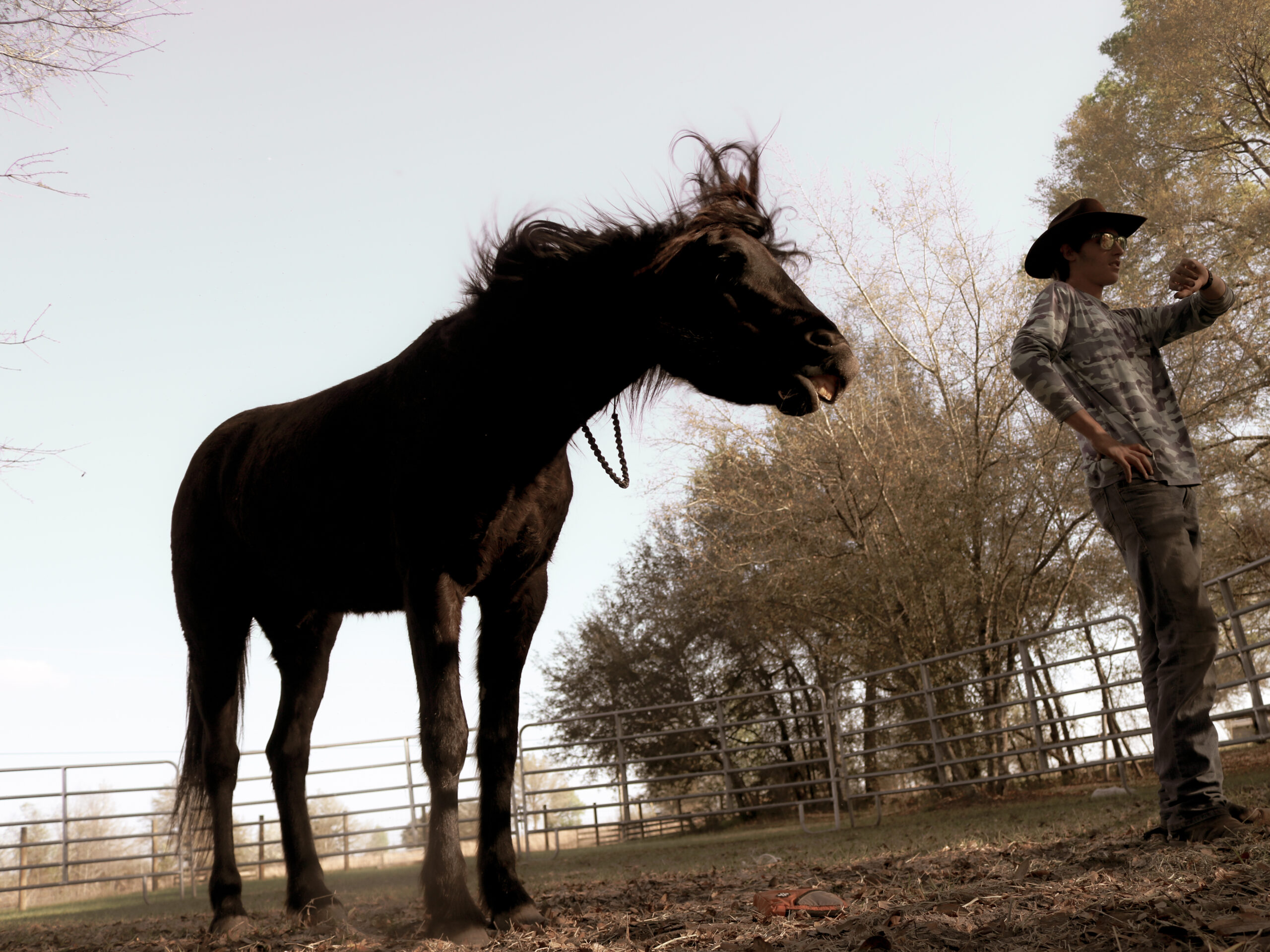
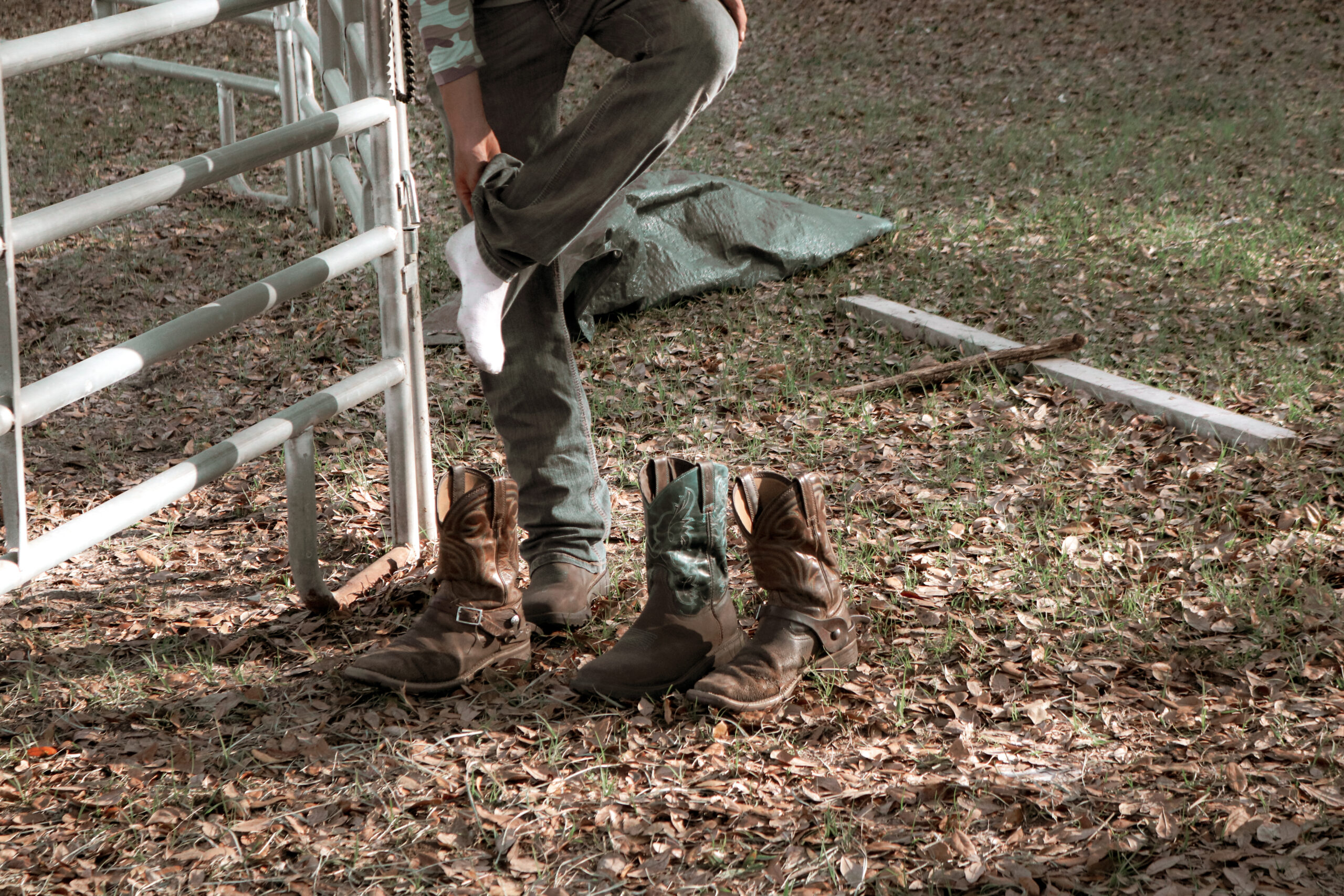
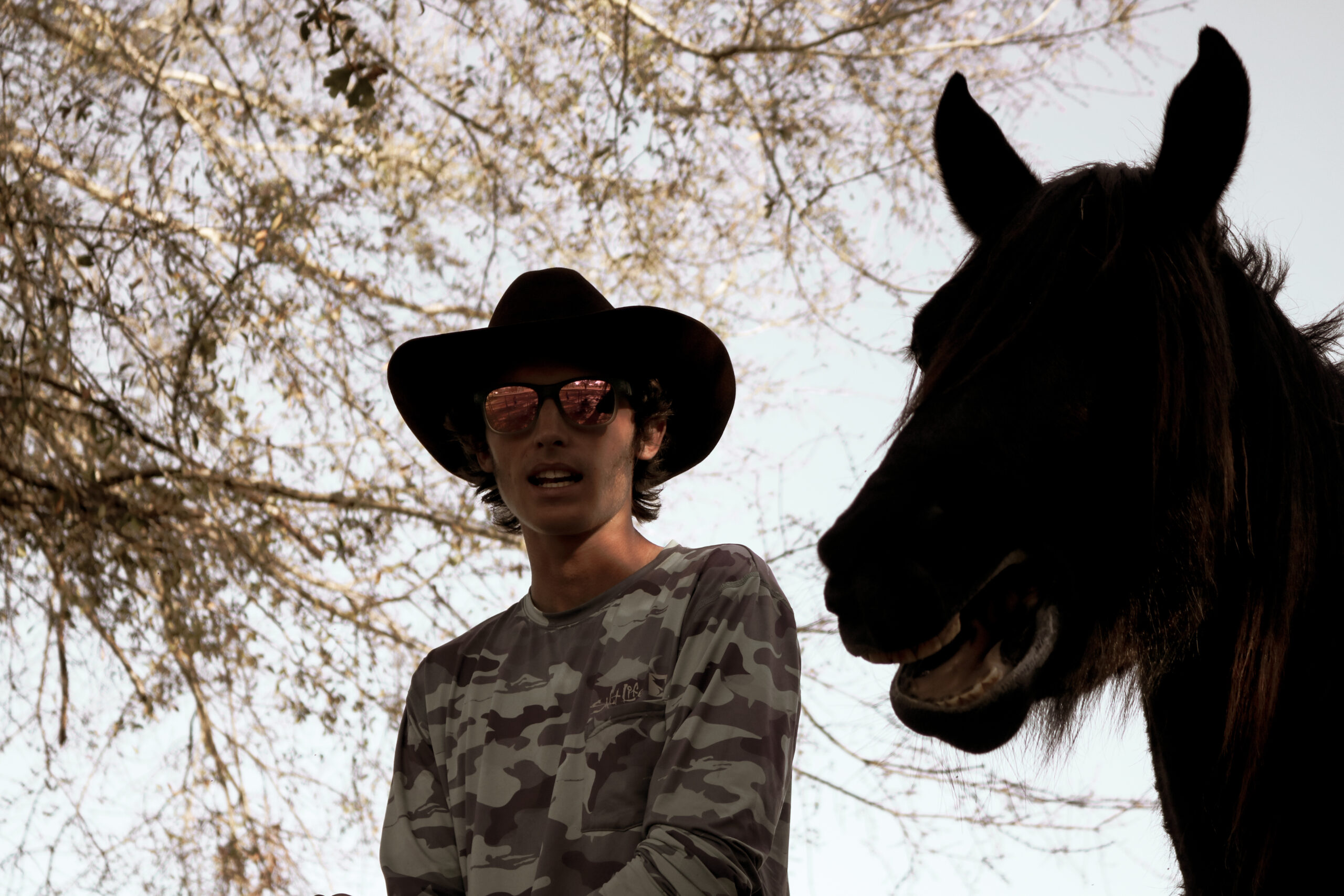
I love how you did this story